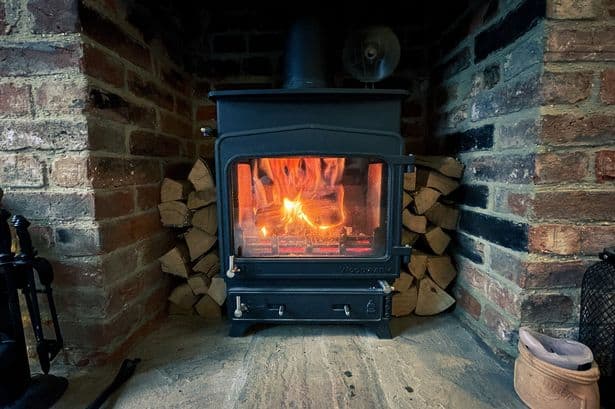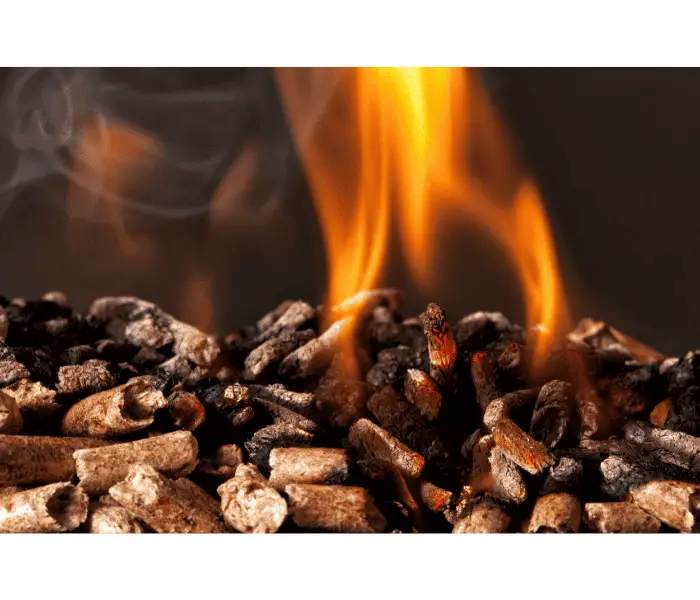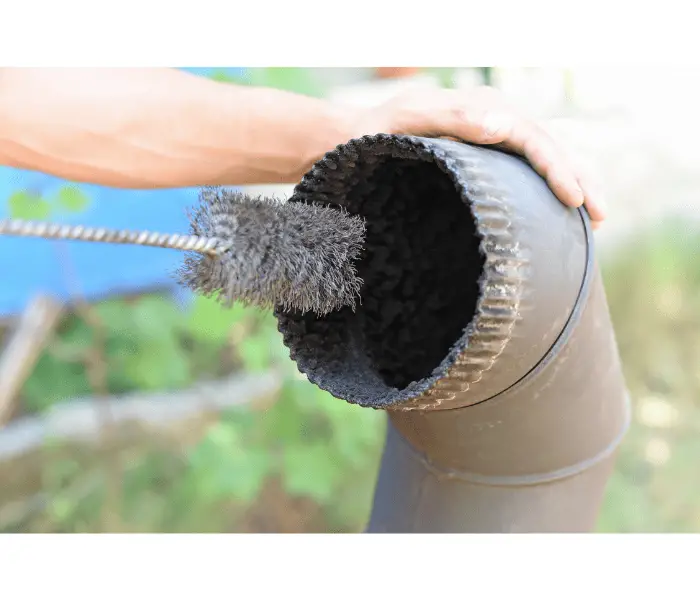Although log burners are arguably one of the safest ways to use wood as a fuel source, they’re not completely without their risks. If nothing else, you’re still dealing with fire.
One question that might have come to mind is can a log burner explode? A log burner can explode if it’s not properly maintained. Typically, a log burner explosion will be the result of gas build up due to unseasoned wood. It can also explode if you don’t sweep your chimney, but that leads to a range of other issues, too.
In this article, we’ll look in more detail at the reasons why a log burner might explode and what you can do to avoid it.
Why Did My Log Burner Explode?
It’s incredibly rare that a log burner explodes because, for the most part, they’re safe and efficient appliances.
However, there are some minor risks that are worth avoiding when using a log burner if you want to prevent log burner explosions.
Too Much Smoke
Did you know that smoke is flammable? This might be surprising, considering it’s a by-product of fire, but there’s plenty in smoke that can ignite.
Most importantly, woodsmoke can contain solid particles, oil and gas, among other things.
In normal circumstances, it’s very rare for smoke to catch fire because it needs specific conditions for this to happen. Unfortunately, these conditions can occur inside a log burner.
The first condition is an increase in temperature. It’s more common for this to happen in an enclosed space, such as a log burner.
If it reaches a high enough temperature, the small particles in the smoke can ignite, often all at once, which can cause an explosion.
Another condition is the fire itself igniting the smoke. This is more likely to happen with smoke that’s high in oil and other volatile organic compounds (VOCs), such as if you’re burning wood like pine.
In most cases, it’s unlikely that this’ll happen.
However, a sudden influx of oxygen can cause it to happen. As you probably know, fire needs oxygen to burn, and letting a lot into the log burner can cause the fire to surge, which could lead to the smoke igniting.
Again, this isn’t very likely because it works against the first condition stated above. If you open the stove’s door, some smoke will escape.
In turn, this will reduce the concentration of smoke in the burner. Of course, you can reduce the chances of this happening even more by having a clean chimney.

Using the Wrong Wood
We’ll go into this in more detail below, but some types of wood are better than others for a log burner. Frequently using the wrong types of wood could increase your risk of an explosion, although this is less likely than the smoke issue.

Understanding What Causes an Explosion
This isn’t a cause of an explosion, of course, but understanding how it happens helps with prevention. In short, an explosion is energy trying to escape a small space in a short time, leading to a burst.
Something like a log burner is a prime space for an explosion because it’s confined, has controlled airflow, and it’s made of a strong material (metal).
When the energy is looking for somewhere to expand, it’ll use an area of weakness, such as the ash pan, door, flue, or any doors.
Being Careful with Wood
While you’ll obviously use wood in your log burner, it’s worth taking care with what materials you use. Log burner explosions aren’t common, but it’ll only take one for you to rethink your burning habits.
That said, prevention is always better than reaction!
Why Does Wood Explode in a Fire?
Wood can “explode” in a fire due to the rapid heating of moisture trapped within its structure. When wood is placed in a fire, the heat causes the moisture inside to rapidly turn into steam.
As the pressure from this steam increases, it can cause the wood to burst or “explode,” resulting in the popping sounds often heard during a wood fire.
This is more likely to occur with green or wet wood, as it contains a higher moisture content compared to seasoned or dry wood. Always ensure wood is well-dried before using it in a fire to prevent such occurrences.
But lets look at why wood can explodes in a fire in more detail:
1. Steam
Seasoned wood should have a moisture content of around 20%. However, even then, explosions can still happen.
They occur when the moisture inside the wood is vapourised more quickly than the wood is burning.
The moisture turns to steam in small pockets and has nowhere to go. The pressure causes the wood to explode, although it’ll never be a massive explosion.
2. Oil and Resin
The same is true for wood that contains oil, resin, or pitch. Younger wood has more volatile oil compounds within it, and even proper seasoning won’t completely remove these. You will find these harmful compounds wooden pallets.
As you burn the wood, the moisture within the resin expands in the same way as described above.
But there’s another risk with resin-heavy wood. Not all of the VOCs in resin will be burnt during combustion, meaning they can end up in your chimney.
If airflow is poor, there’s a risk these could ignite. At best, you could have flames shooting out your chimney. At worst, it could result in an explosion.
How to Avoid Log Burner Explosions
Avoiding log burner explosions is mostly common sense. Make sure to follow these tips:
· Clean your chimney at least once a year before burning season.
· Use properly seasoned wood that’s cured for at least 6 months.
· Ideally, use older wood that’s lower in VOCs anyway.
· Open the burner’s door slowly so there’s no sudden influx of oxygen.
· When lighting your log burner, keep the door open slightly to provide good air circulation until it’s burning properly.
· Where possible, don’t let wood smoulder for too long without attention.
It’s worth noting again that log burner explosions are very rare. A stove is designed to contain fire and keep it burning in a safe way.
Keeping it clean and free from ash and soot will drastically reduce the chances of anything dangerous happening.

Can a Wood stove explode?
Wrapping up, the chance of a wood stove exploding, though exceedingly rare, cannot be completely dismissed. This could happen typically when the stove suffers misuse, lacks proper maintenance, or gets overloaded with combustible materials.
Hence, every wood stove user should be proactive in ensuring responsible usage, regular inspections, and strict adherence to the manufacturer’s guidelines. Such safety practices, when meticulously followed, have the potential to drastically reduce any risks associated with harmful incidents.
Wood Stove Explosion
These tips should help you prevent wood stove explosions in your home. If it does happen, you can rest easy that it’ll very rarely be a big explosion because wood simply isn’t volatile enough. So log burners won’t be getting banned any time soon!
Even so, make sure you practice proper fire safety.



